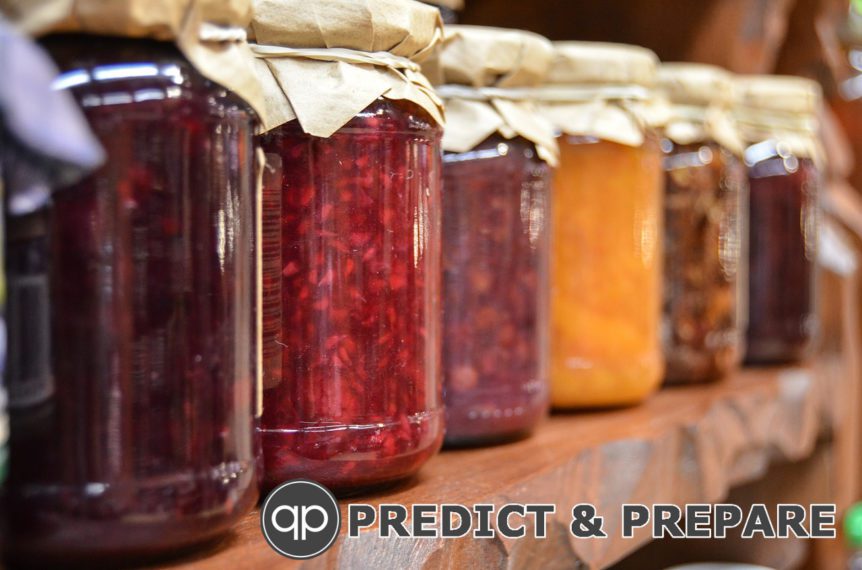Even though a person can go far longer without food than water, food storage is the top priority for most preppers. With some basic tips, anyone can get prepared even on a limited budget in a small space.
You don’t need a huge basement or cellar for storage, by thinking outside the box there are many different areas in the home where food can be stored. By decluttering closets, building shelves under staircases, and purchasing inexpensive under the bed storage bins, you can find plenty of space to store food (especially canned goods).
Making sure your food is stored properly is crucial. Keep at room temperature or below in a low lit area, avoid excess oxygen or moisture (both promote bacteria) and protect from insects/rodents. Plastic #2 food containers are ideal and there are ways of obtaining them at a very low cost. For example, if you are looking to get large containers for bulk rice/beans/grain, you can ask at your local grocery store in the bakery department for empty icing buckets (they are usually just thrown out so you can get them for free).
Organization is essential when storing food. It’s not just about stockpiling a ton of food and leaving it for years in case of a crisis situation. The goal is to use your storage as you go by consuming the oldest food first, which results in less waste. It also allows you to make changes along the way (if needed) so if disaster strikes, you are prepared. You can purchase a food rotation system for canned goods (FIFO) or create your own system by labeling everything and making sure newly purchased food is stored at the back and older food is at the front.
Probably the most important thing to keep in mind is storing food that is easy to prepare and that you actually like to eat. Being in a crisis situation is stressful enough, you don’t need to make it worse by having food on hand you don’t even like (this is even more important if you have kids). There are a variety of foods to choose from that have a long shelf life besides the obvious canned goods, like freeze dried, dehydrated, MREs, rice, beans, grains, etc. Also make sure you have a stock of salt, spices, cooking oil, etc. on hand to add flavour. Don’t forget to stock up on vitamins as well to stay healthy.
The thought of getting started can be overwhelming for some but with just a bit of dedication, organization and a few extra dollars per week, it is possible. Whether it’s for the potential of a personal crisis, a natural disaster or you believe that one day there will be a global food shortage, there’s no time like the present to get prepared!

Comments 1
Pingback: The Prepper's Blueprint: A Guide To Help You Through Any Disaster - PREDICT & PREPARE